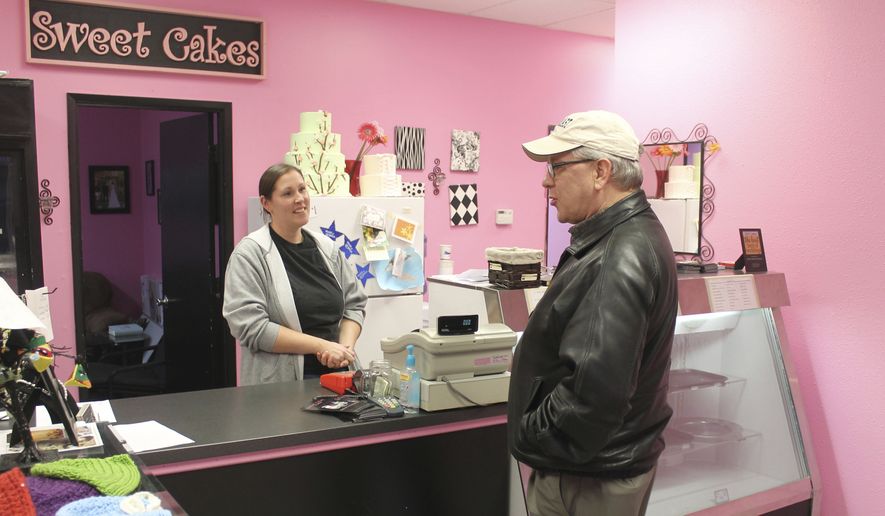A Christian baker is back at the Supreme Court, asking the justices once again to take up her challenge to Oregon’s public accommodations law after the state put her out of business for refusing to create a custom wedding cake for a same-sex couple.
Melissa Klein and her husband Aaron owned “Sweet Cakes by Melissa.” They served all customers without discrimination until 2013 when they were approached by repeat customers for a custom cake — but this time it was to celebrate the same-sex marriage of a lesbian couple.
They refused to participate, citing the Bible’s teaching against homosexuality and their faith. As a result, the couple filed a complaint with the state, which fined them $135,000.
When they first appealed to the Supreme Court, the justices sent their case back down to Oregon courts citing the 2018 ruling in Masterpiece Cakeshop Ltd. v. Colorado Civil Rights Commission, where they sided with a Christian baker who refused to bake a same-sex wedding cake for a gay couple.
The high court’s 2018 ruling, though, in Masterpiece only noted that the baker did not receive a fair hearing from the Colorado commission, and the state’s civil rights commission was biased against him.
Similarly, lower courts in Oregon said the Kleins had been hit with a heightened fine for citing the Bible, reasoning that was unfair. But the court still ruled against them, imposing a new fine of $30,000.
The new $30,000 fine and second decision against the couple sparked them to once again ask the high court this month to review their case, arguing as artists they have a First Amendment right not to create custom cakes that violate their religion or force them to speak in a way that runs afoul of their faith.
“All Americans are entitled to due process, with a fair hearing before an unbiased tribunal. The Kleins never received that,” said Stephanie Taub, senior counsel for First Liberty Institute, representing the Kleins. “We hope the Court will hear the Kleins’ case and clarify that all Americans have a constitutional right to due process, free speech, and religious liberty. After nearly a decade, it’s past time for the Supreme Court to put an end to the state of Oregon’s hostility toward Aaron and Melissa.”
A spokesperson from the Oregon Bureau of Labor and Industries said they don’t comment on pending litigation.
The justices return from summer recess for their first conference on Sept. 28. They could act on the Kleins’ appeal as soon as Oct. 3.
The high court, meanwhile, did agree to hear a similar case, 303 Creative v. Elenis, this coming term weighing a website designer’s challenge to Colorado’s public accommodations law.
The website designer, Lorie Smith, argues the law requires her to create websites for clients even if she disagrees with the message in violation of her right to free speech.
A date for oral arguments in that case has not yet been scheduled, but Ms. Taub said a ruling in favor of the website designer would help her clients.
“The Supreme Court’s grant of cert in 303 Creative could impact the Kleins’ case because both involve free speech,” she said. “The Kleins’ case differs, however, in that we ask [the] Court to rule on the issue of free exercise [of religion] as well.”
• Alex Swoyer can be reached at aswoyer@washingtontimes.com.




Please read our comment policy before commenting.